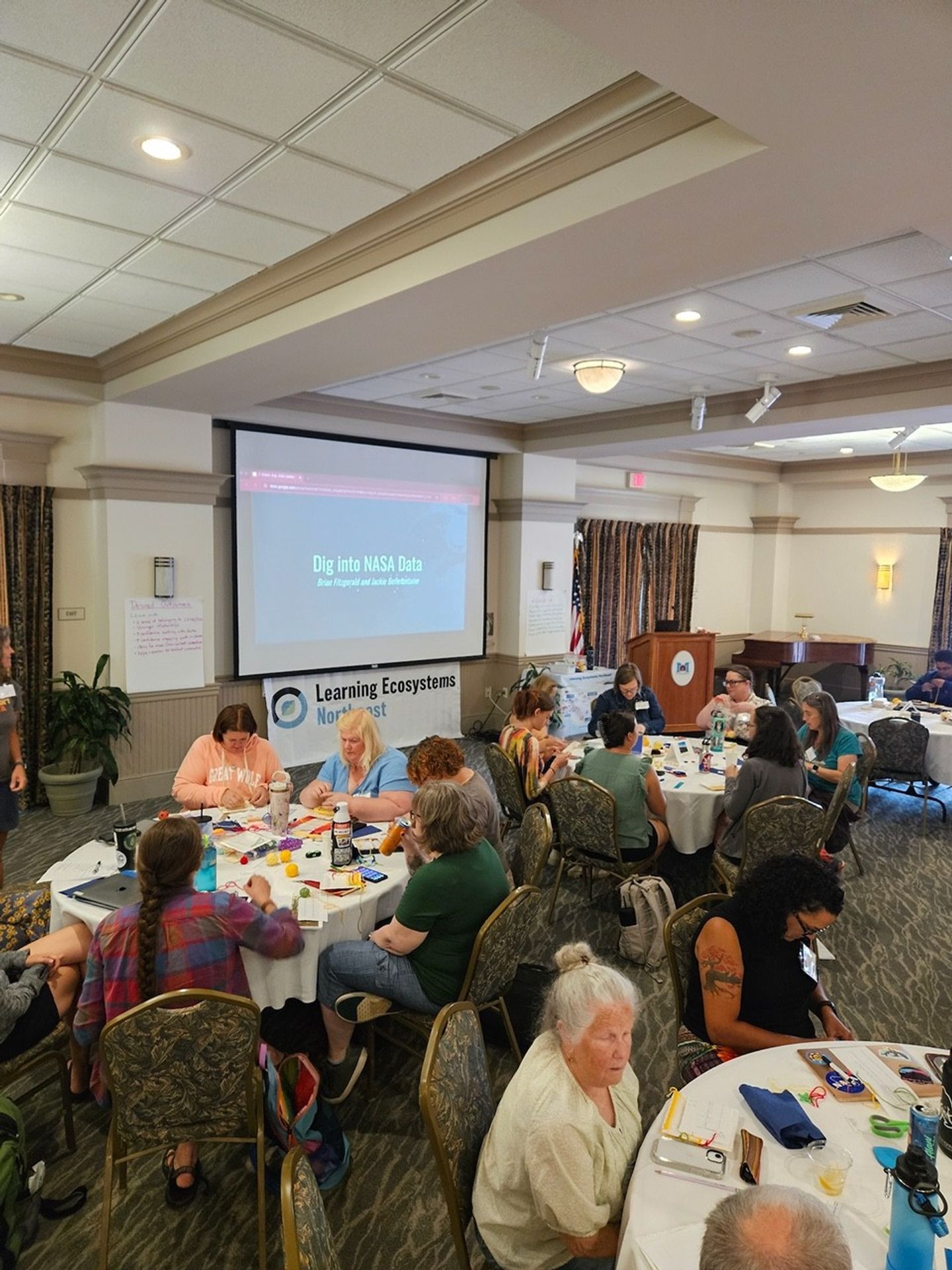One of the challenges many teachers face year after year is a sense of working alone. Despite the constant interaction with students many questions often linger: Did the lesson stick? Will students carry this knowledge with them? Will it shape how they see and engage with the world? What can be easy to overlook is that teaching does not happen in isolation. Each classroom, or any other educational setting, is part of a much larger journey that learners travel. This journey extends through a network of educators, where each experience can build on the last. These interconnected networks, known as Connected Learning Ecosystems (CLEs), exist wherever learning happens. At their core, CLEs are the collective of people who contribute to a young person's growth and education over time.

Recognizing this, NASA's Science Activation Program launched the Learning Ecosystems Northeast (LENE) project to strengthen and connect regional educator networks across Maine and the broader Northeast. With a shared focus on Science, Technology, Engineering, and Mathematics (STEM), LENE brings together teachers, librarians, 4-H mentors, land trust educators, and many others committed to expanding scientific understanding, deepening data literacy, and preparing youth to navigate a changing planet. To support this work, LENE hosts biannual Connected Learning Ecosystem Gatherings. These multi-day events bring educators together to share progress, celebrate achievements, and plan future collaborations. More than networking, these gatherings reinforce the collective impact educators have, ensuring that their efforts resonate far beyond individual classrooms and enrich the lives of the learners they guide.






